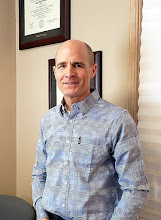
I like to fix things. I recently prevailed in restoring my once dead laptop into a working machine once more. Last November, after putting my computer to sleep one evening, I was unable to rouse it. It sat for three months until I could finally restore it this weekend. In that process I was reminded how satisfying it is to fix something.
I've enjoyed this since I was a kid, at least the taking apart and seeing what was inside. Sometimes I destroyed stuff by my curiosity. One fond memory is when I took my Mickey Mouse transistor radio and attached an AC cord to the 9 volt battery wires. My rationale was that I was tired of changing the battery. I plugged it into the wall and all was grand until I turned the little rotary volume on/off dial to the on position. There was moment of sound through the small speaker and an immediate blue flash and puff of smoke and my radio was toast.
Years later I realized I needed to apply myself to the study of things electronic if I was going to be able to fix them. After a career of building and fixing electronic devices I decided to learn to fix the greatest machine, the human body. But living things are vastly different from anything man has invented. Mechanical and electronic devices wear out and break down. When there is a failure you troubleshoot the problem and replace or fix bad parts. In living things, replacing bad parts never results in a fully restored "machine." At best it's a pale shadow of it's original form. Modern medical advances can do wonderful things, but true health requires recognition of the innate healing capacity of the body.
Step one is to place yourself within an environment that promotes restoration and healing. There is a place for heroic measures to save lives, fixing bodies after traumas, doing our best to help those with genetic abnormalities, but the majority of disease today requires attention to environment. And I'm not talking about global warming and the green revolution. It's your local environment within which you place your body each day: the stresses, vices, inactivities, excesses, and toxicities.
There is a pervasive attitude of personal denial, ignoring the things that really matter, while enlisting the assistance of doctors who prescribe anti-depressants instead of finding the cause of your woes. Many care-givers are just unaware or lack the time and skill to address such things. They are trained to save lives not maximize health.
Vaccines are a good case in point. Here you have a medical intervention from the dark ages of modern medicine, mid-1700's, still in use today and ever increasing its dominance of public health policy. It's based on fear and ignorance of "the Terrain is everything, the Germ is nothing" as Louis Pasteur is purported to have said on his deathbed. In other words, it's a losing battle to put your faith in eradicating all the germs, while ignoring the terrain. You can start improving your environment with a nourishing diet, clean water, physical activity, spiritual truth, and love.
Denial is the river of declining health. Seek good information, gain wisdom and pursue truth, but be careful who you relinquish your body and soul to. More prescription drugs and surgical procedures rarely lead to a better state of health.
If your computer breaks down, don't call me, but then you're probably not reading this. If you'd like help improving your health, I can help you with that.






No comments:
Post a Comment